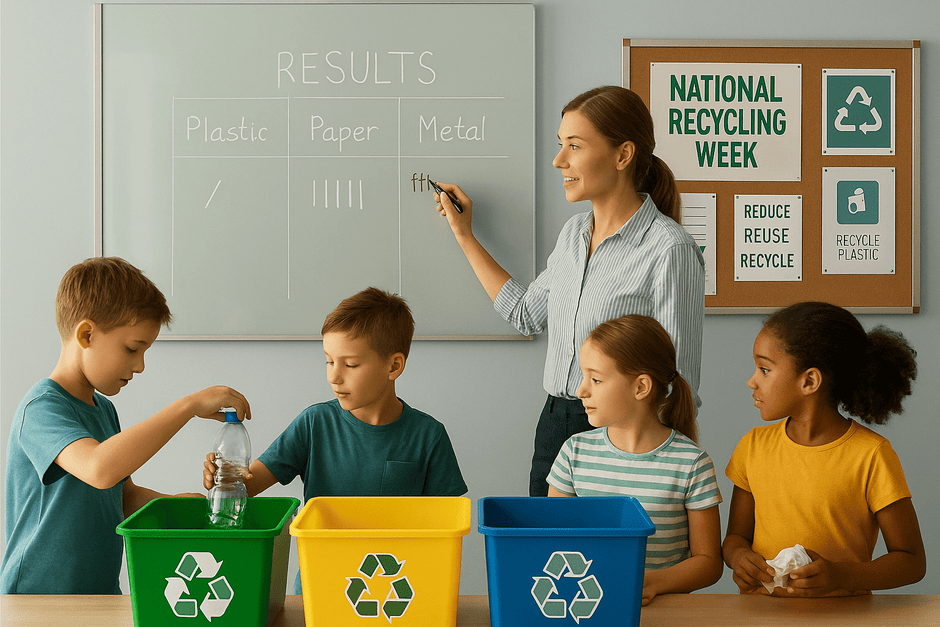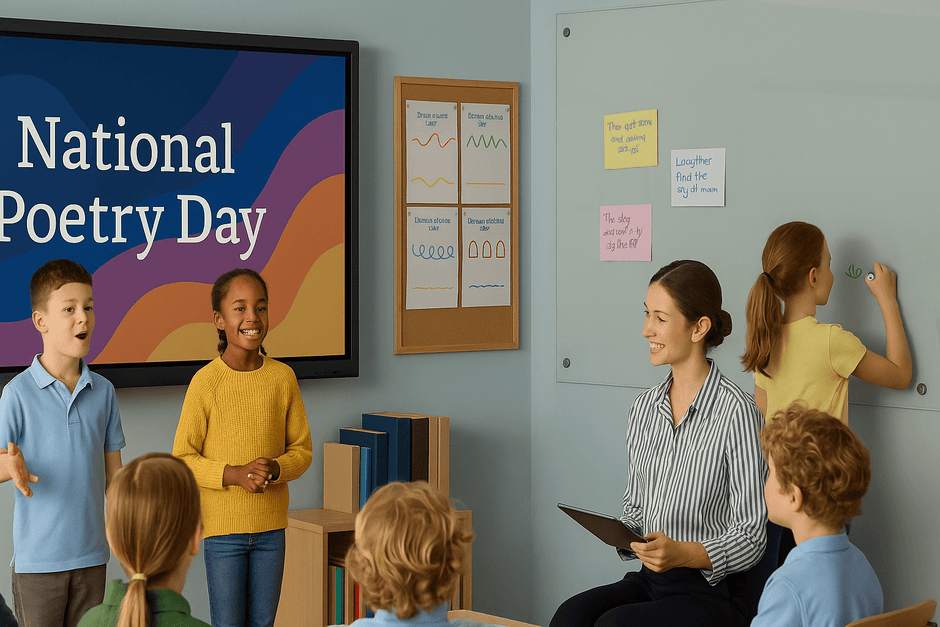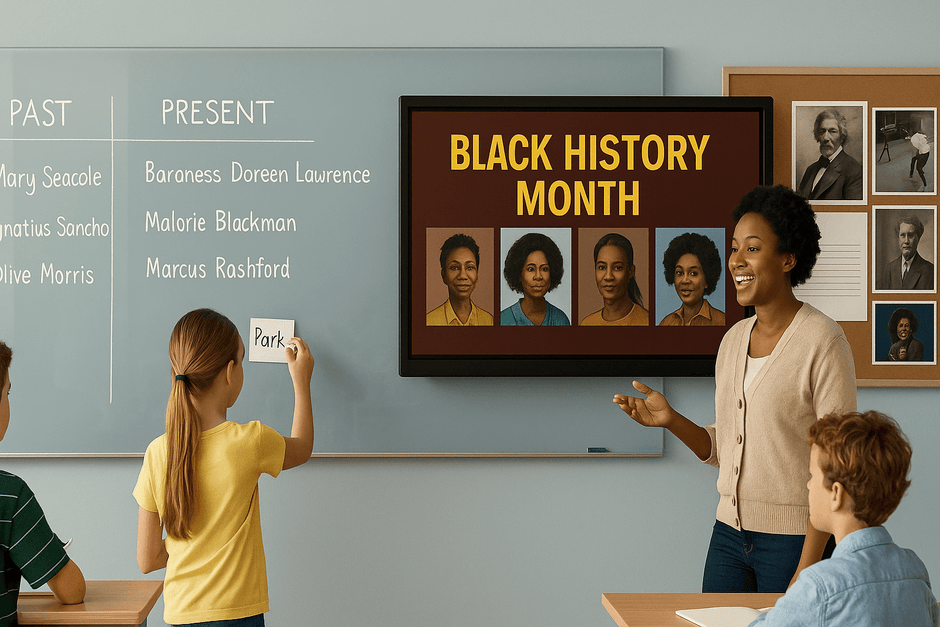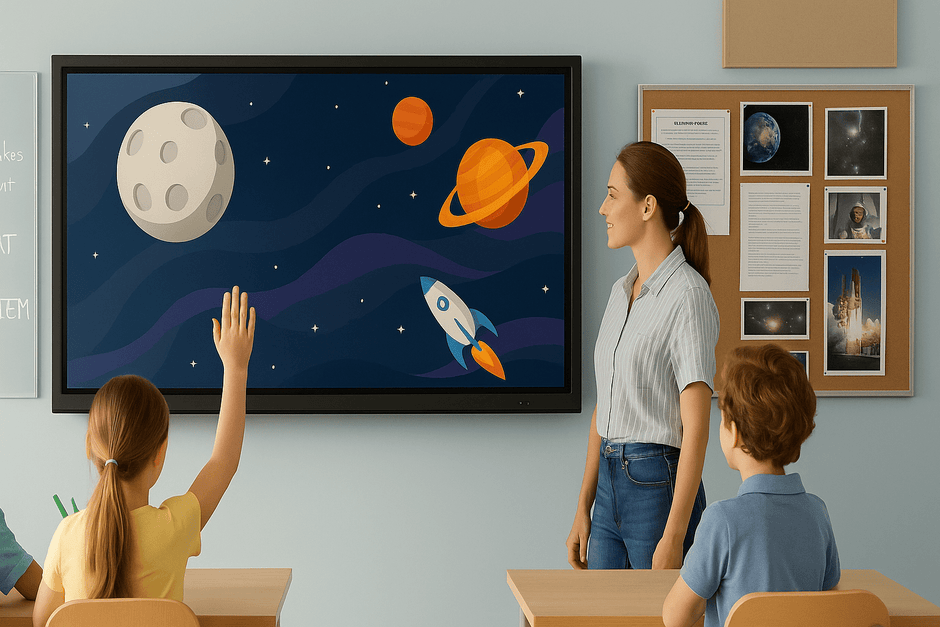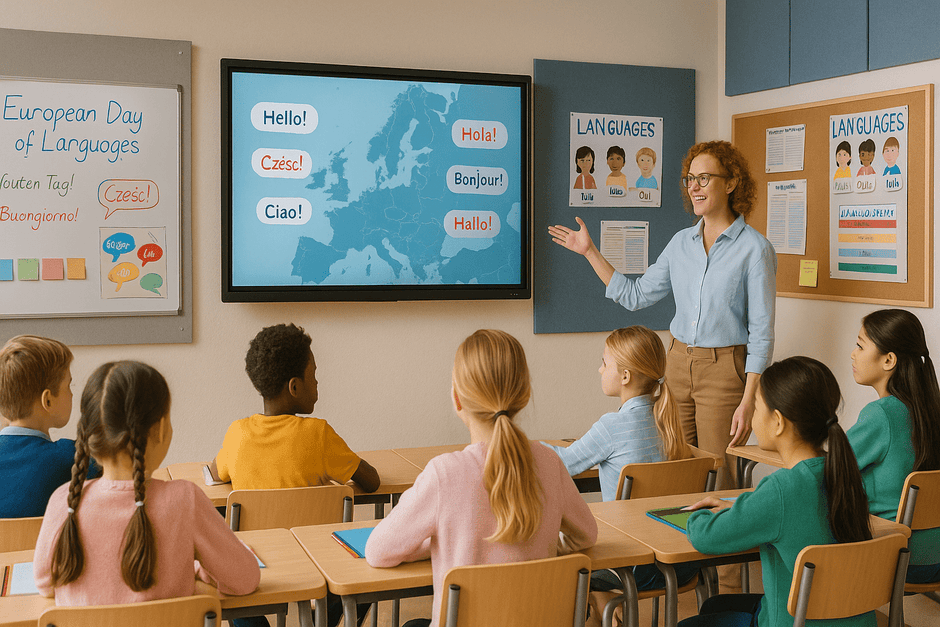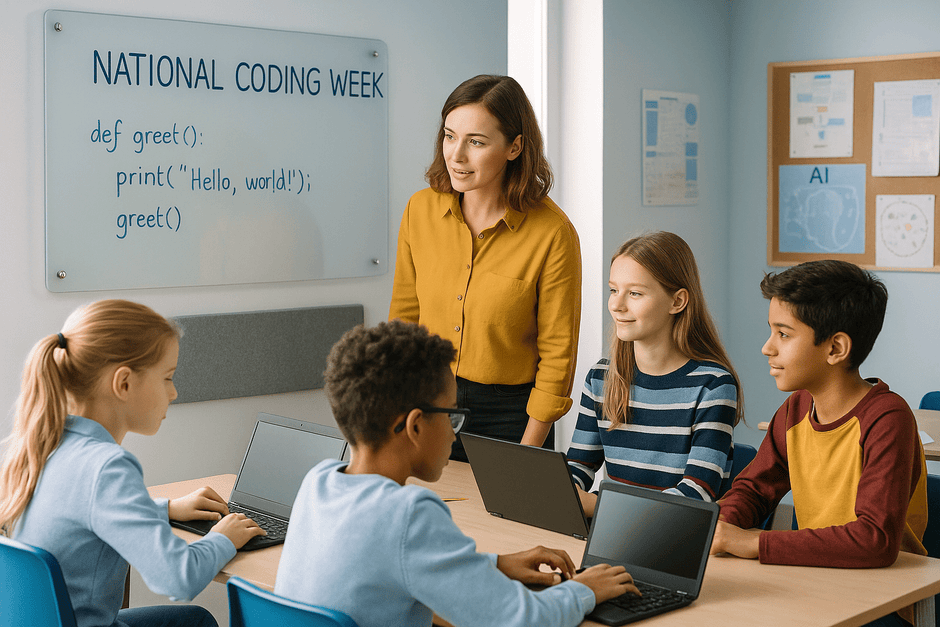National Recycling Week 2025: How schools can turn waste into learning
Date: 10–16 November 2025 • Read time: ~12 minutes
National Recycling Week is a chance for schools to turn everyday actions into hands-on learning. This year’s focus builds on missed opportunities — the materials we often throw away that could be rescued, reused or recycled. Here’s how to plan a week of high-impact activities that make sustainability visible in your classrooms and corridors.
Why Recycling Week matters
Recycling Week highlights the impact of everyday choices. For pupils, it’s a chance to see how small actions add up to big change. Schools that use the week well don’t just talk about recycling — they model it, measure it and celebrate it.
What schools have done before
- Waste audits – weighing, sorting and displaying what could have been recycled.
- Creative upcycling – art projects and design competitions using packaging and scrap.
- Campaign posters – persuasive writing and design challenges displayed across school.
- Community clean-ups – pupils and families tackling litter locally.
Best practice: involve pupils in planning, measure and display results visibly, and make sure the changes last beyond the week.
Activity ideas for 2025
- Missed-capture challenge – classes audit bins to see what recyclable items were thrown away.
- Adopt a bin – each class takes responsibility for monitoring one recycling stream.
- Symbols trail – a scavenger hunt for recycling logos and contamination errors.
- Upcycle design competition – turn “waste” into useful or artistic products.
- Maths & data links – graph audit results and calculate percentage improvements.
- Persuasive writing – design posters or scripts for assemblies and social media.
Inclusion and pupil voice
- Use visual supports (sorting cards, symbol charts) for younger and EAL pupils.
- Encourage SEN-friendly participation with tactile, hands-on sorting and art tasks.
- Provide multiple ways to contribute: data, design, speaking, writing, or art.
- Celebrate pupil leaders through eco-clubs and green teams who present findings.
Learning spaces that help
Recycling Week works best when results and creativity are visible:
- Glassboards – track daily recycling results, record pledges, or build a “waste rescued” wall.
- Display boards – show posters, artwork and class campaign slogans.
- Acoustic panels – improve clarity during eco-assemblies or presentations.
- Interactive screens – show videos of recycling processes and highlight global impact.
- Projection screens – for assemblies, family showcases or data presentations.
Relevant products from Presentation Spaces
Explore solutions that make sustainability learning visible and collaborative:
- Glassboards – perfect for recording audits, pledges and eco-data.
- Display Boards – publish posters, campaign messages and artwork from upcycled materials.
- Acoustic Panels – ensure eco-presentations and performances are clearly heard.
- Interactive Screens – share recycling videos, live data graphs and student campaigns.
- Projection Screens – whole-school assemblies and community showcases.
Sample week plan
| Day | Morning | Afternoon | Extra |
|---|---|---|---|
| Monday | Assembly launch: theme and targets | Waste audit in classrooms | Results on glassboards |
| Tuesday | Sorting station challenge | Upcycle art workshop | Invite families to bring recyclables |
| Wednesday | Symbols trail | Poster / campaign writing | Interactive screen video session |
| Thursday | Maths: graph results | Prepare showcase | Display boards updated with pledges |
| Friday | Class presentations: what we rescued | Family/community showcase | Projection screen highlights + reflection |
Next steps
Pick two high-impact recycling activities, prepare visible displays, and plan one follow-up action so the gains last beyond November.
Need help specifying? Contact Presentation Spaces for advice on glassboards, acoustic upgrades and digital display solutions that make sustainability learning visible and lasting.




